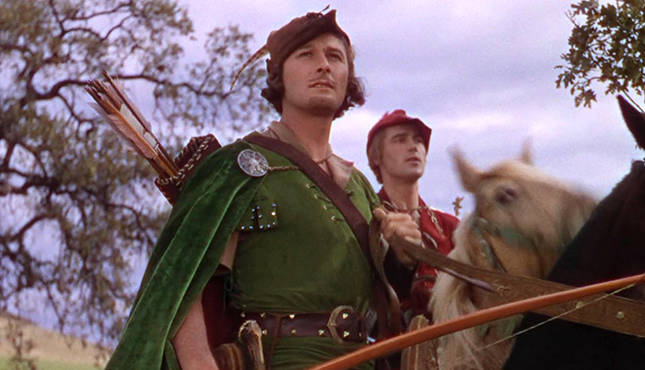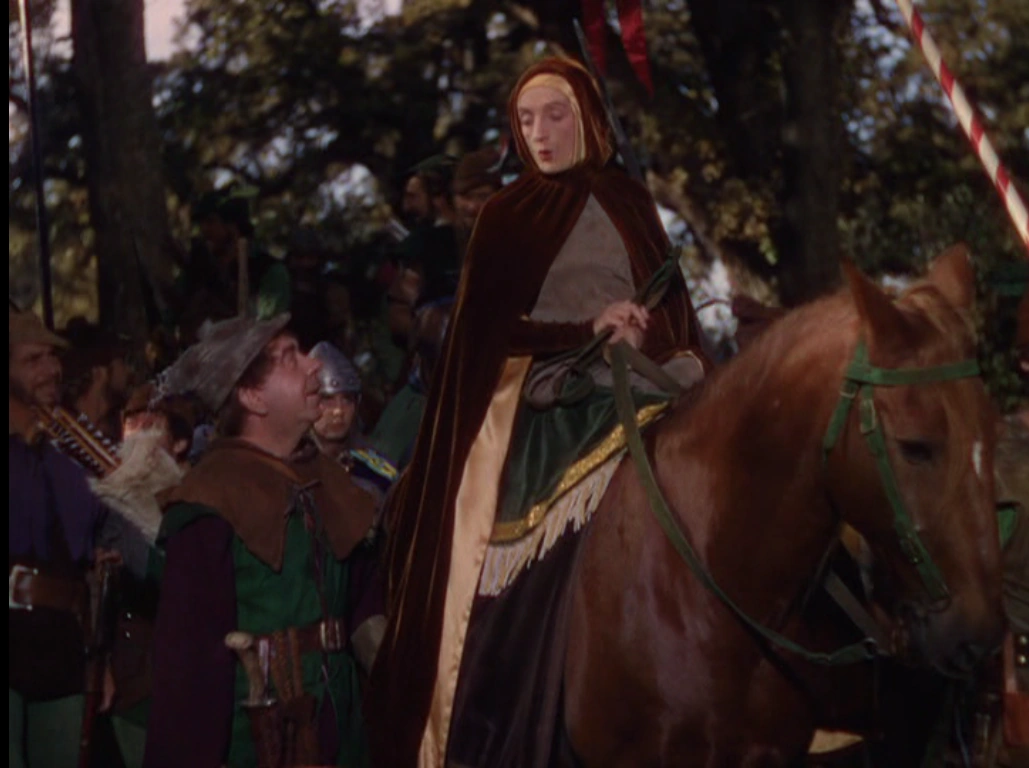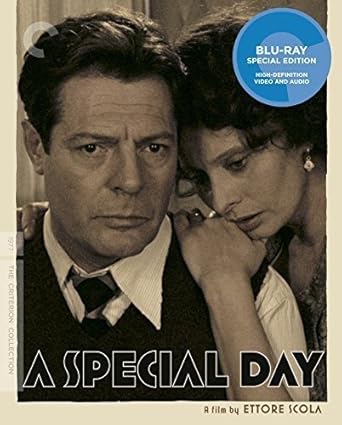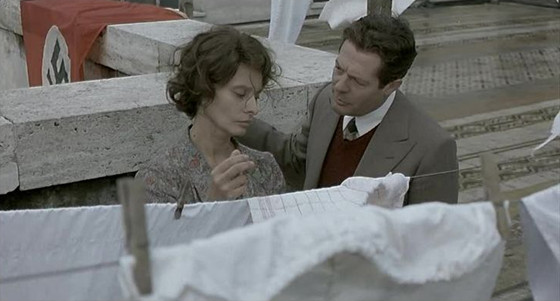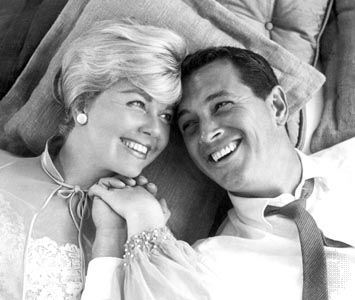This review is part of the Summer Under the Stars Blogathon. Today's star is Elizabeth Taylor.
Among their other sobriquets, the acting couple of Richard Burton and Elizabeth Taylor were known as The Battling Burtons, boozing and brawling their way through nine films and several headlines. Sometimes, their public personas and domestic squabbles could be played for laughs, like in The Taming of the Shrew. Other times, they were played for frightening drama. Such is the case with Who's Afraid of Virginia Woolf? as dark a tale of domestic strife as has been committed to film.
Over the course of an evening, associate history professor George (Burton) and his wife, Martha (Taylor) host a new couple at their home for lots of drinks. Biology professor Nick (George Segal) is young and handsome. His wife Honey (Sandy Dennis) is mousy and scatterbrained. Even though it is already in the early morning hours, George and Martha keep insisting that Nick and Honey continue their midnight caps.
Martha, daughter of the university president, is a harpy to her henpecked husband. They take turns expressing love and hate toward the other in equal measure. Honey cannot handle liquor, leading to her becoming ill. In the midst of all this, Martha mentions her and George's son, who is about to turn 16. The mention of their son unleashes a very strange anger from George. Nick and Honey have no children, though Nick married Honey when he thought she was pregnant, but which turned out to be a hysterical pregnancy.
As everyone keeps drinking and fighting, with bits of affection slipping through, the foursome eventually ends up at a roadhouse where secrets are revealed. Here, Martha declares total war on George. These wicked games of "Humiliate the Host" are followed up by such horrors as "Get the Guests" and "Hump the Hostess". It may be dawning, but for one of our gruesome couples, the son will set to heartbreaking results. Who is afraid of Virginia Woolf? The answer is a deeply tragic one.
An evening with George and Martha is like entering the twentieth circle of Hell. These two figures, vicious and cruel to everyone around them, at first appall us with their insults and anger. As Who's Afraid of Virginia Woolf? continues, we start seeing something different. Behind their backbiting and barbs are two very hurt, pained people. It is a strange coupling in that they would appear to hate and resent each other. Yet, while George and Martha are nasty towards each other, they are also holding on to the other for dear life. One senses that life has made them bitter, the optimism of their early years sapped into a mix of resentments, recriminations and resignation about where they are.
Despite all that they do to the other, we end up feeling great sadness for them. George and Martha may at times physically assault the other. Yet, they also reveal that behind their outward animosity and anger is still a spark of genuine love. That makes it all the more tragic.
The entire credited cast (Burton, Taylor, Seagal and Dennis) received Oscar nominations for Who's Afraid of Virginia Woolf? The Academy favored the women as Taylor and Dennis emerged victorious that year. Who's Afraid of Virginia Woolf? is in my view Elizabeth Taylor's finest hour as an actress. She deglamorized herself here, looking disheveled and bordering on the brink of total chaos. Taylor shifts throughout the film perfectly. In the beginning, she is tough, belligerent, a mouthy broad who seems to take delight in bashing her seemingly weak husband. As the film progresses, she takes on a mix of defiance and defensiveness. "I'm loud, and I'm vulgar, and I wear the pants in the house because somebody's got to, but I am NOT a monster," she proclaims to George. It is as if despite her vulgarity and cruelty, Martha is also desperate for love and kindness.When the film reaches its climax and we learn the truth about George and Martha's son, Martha's emotional collapse is extremely heartbreaking to witness. Elizabeth Taylor will move the viewer in her role. It is a painful thing to see, Martha losing the one thing that has given her a sense of joy. It is sad, so terribly sad. Despite her earlier claims, she cannot stand it. As dawn rises, we see Martha fall, the pain and loss she now has making us tear up for her. That mix of cruelty and bravado comes undone, and Taylor makes us sympathize with someone who has done so much to hurt and humiliate George.
Dennis, winning for Supporting Actress, makes Honey into this wimpy, dim figure, easily pushed into agreeing to things that did not happen. She is almost crazed as Honey, indulging in irrationality but also deeply vulnerable and hurt.
While Richard Burton did not win Best Actor, one of his seven eventual losses, he is brilliant as George. Martha calls him a flop and a simp (long before the term became more common). Yet, behind his facade of intellectual wimp is someone who is as cruel if not crueler than Martha. Burton makes George into an eerily calm figure, calculating at times, aware of how he can hurt others. He has a wonderful monologue where he talks about a childhood classmate who killed both his parents on separate occasions. It is a spooky scene, acted with quite foreboding. George is at times self-pitying, but he is also lashing out at the frustrations of his life to painful ends.George Segal, to my mind, is the weak link in Who's Afraid of Virginia Woolf? It is not that he gave a bad performance. His scene with Burton when he reveals more than he should about his life pre-and-post Honey along with his idea of literally sleeping his way to the top is good. It is just that to me, Segal does not have the looks or build that I imagine that the seductive Nick should have. Nick is supposed to be 28, but Segal looks older than his 32 years.
Everything in Who's Afraid of Virginia Woolf? works. It is a surprise that this is the directorial film debut for Mike Nichols. He got excellent performances out of his cast. I would say that Nichols directed each actor to what I think are their definitive performances. He also made all the other elements of the film work. There is Alex North's score, which is elegant and mournful. Sam O'Steen's editing was top-notch, particularly the transition from when George slams the breaks on the car to Honey's wild interpretive dance. Haskell Wexler's cinematography gave us this stark world. The highlight here is when George and Martha declare total war on each other, the streetlights making them look as if they were in some living nightmare. Ernest Lehman's adaptation of Edward Albee's play manages to open up the story just enough without it looking like a filmed play.
Who's Afraid of Virginia Woolf? goes from a horror show to a deep tragedy. It has brilliant performances from the cast. It flows smoothly and never lags throughout its two-hour-plus runtime. At the end of the film, we find out the answer to the question, "Who's afraid of Virginia Woolf?" (the title coming from a play on the song "Who's Afraid of the Big Bad Wolf?" and writer Virginia Woolf). The answer is again, a heartbreaking one.




















.jpg)

